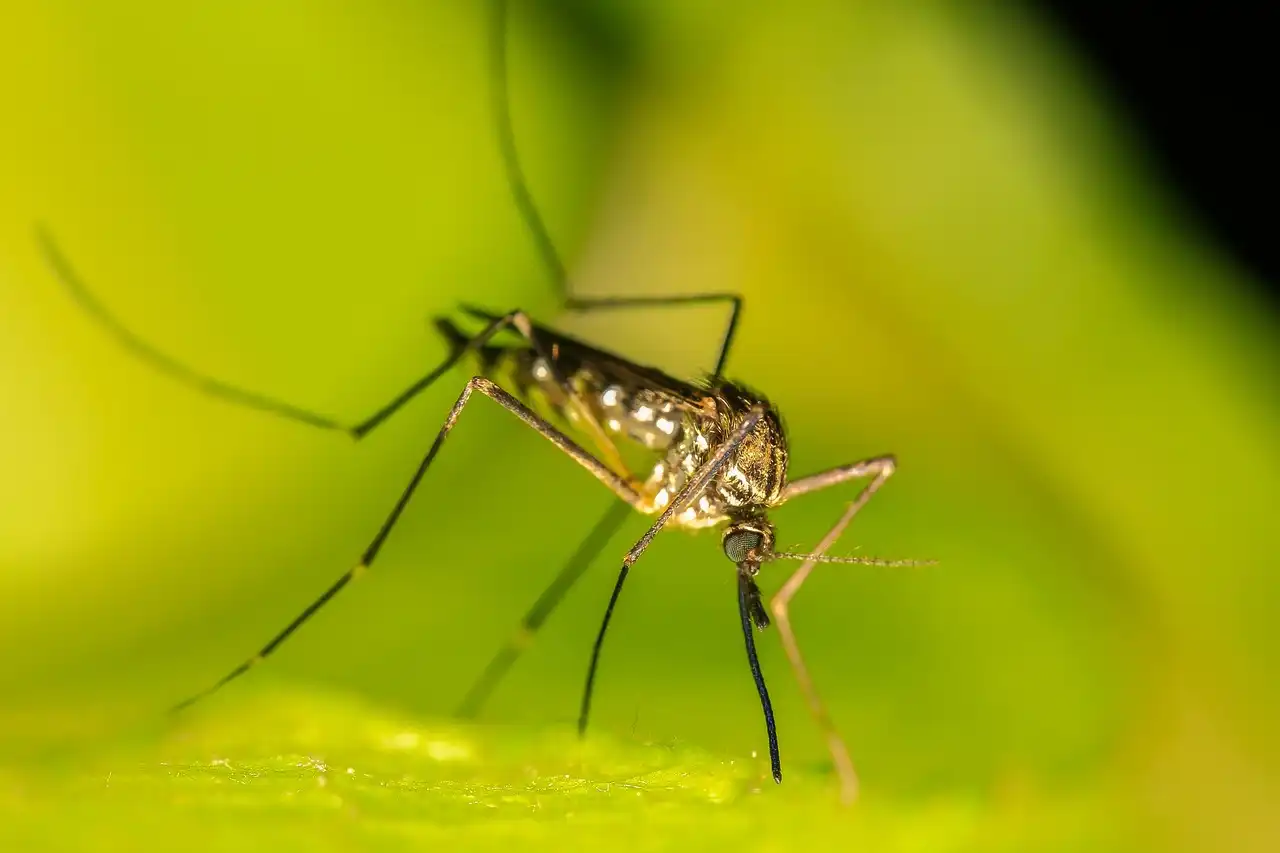Chikungunya Chronicles: Unraveling the Web of Myths and Facts
Muhe - Thursday, 24 July 2025 | 06:00 AM (WIB)


Myth #1: Chikungunya? Oh, that’s just like dengue, right? Or malaria?
Let's kick things off with a classic mix-up. It’s super common for people to lump all mosquito-borne illnesses together, as if they’re all variations of the same dreary tune. But here's the lowdown: while Chikungunya, dengue, and malaria all come courtesy of our buzzing frenemies, they're distinct diseases caused by different viruses (or parasites, in malaria's case) and they hit you differently. Malaria, for instance, is caused by a parasite and is infamous for its cyclical fevers and chills. Dengue, a viral infection, can lead to severe bleeding and fluid leakage. Chikungunya, on the other hand, is a viral infection most notorious for its name, which means "to become contorted" in the Makonde language – a nod to the debilitating joint pain it causes. We're talking severe, often symmetrical, pain in your wrists, ankles, knees, and even fingers. So, no, they’re not siblings; maybe distant cousins who share a family trait (the mosquito vector), but definitely not identical twins. Understanding the differences is step one to not panicking unnecessarily and getting the right help.Myth #2: You can totally catch Chikungunya by just hanging out with someone who has it.
Okay, let’s clear this up ASAP because this one often causes unnecessary fear and social distancing (the wrong kind). Here’s the deal: Chikungunya is not contagious from person to person. You can't get it by sharing a meal, hugging your friend, or even exchanging a high-five with someone who's feeling the pain. The virus needs a mosquito – specifically, the *Aedes aegypti* and *Aedes albopictus* mosquitoes – to act as its taxi service. Think of it like this: the mosquito bites an infected person, sucks up some virus-laden blood, the virus then incubates in the mosquito, and *then* that same mosquito bites another uninfected person, transmitting the virus. So, unless your buddy suddenly sprouts wings and bites you, you're safe from direct transmission. No biggie on the human-to-human front.Myth #3: There’s some magic pill or a vaccine ready to zap Chikungunya away.
Oh, how we wish! In a world of instant gratification and quick fixes, it's easy to assume there's a specific cure for every ailment. Unfortunately, when it comes to Chikungunya, we're not quite there yet. As of now, there’s no specific antiviral treatment to fight the Chikungunya virus itself. Doctors focus on managing the symptoms: fever, pain, and inflammation. This usually means a good dose of rest, hydration, and over-the-counter pain relievers like paracetamol. For those with severe joint pain, sometimes stronger medications or physical therapy might be needed. And a vaccine? While there's promising research and some candidates in various stages of development, a widely available, approved vaccine for public use is still a work in progress. So, don't fall for any online ads promising a miracle cure. Stick to medical advice, friends.Myth #4: Once you get it, you’re immune forever, and then you’re totally fine afterward.
This is a tricky one, and it's a bit of a half-truth, which makes it even more insidious. It's true that once you've had Chikungunya, you generally develop long-lasting immunity to that specific strain of the virus. Good news, right? Not entirely. The "totally fine afterward" part is where this myth falls flat on its face. While the acute phase (the fever and initial intense pain) usually lasts about a week, many, and we mean *many*, people experience lingering joint pain for weeks, months, or even years after the virus has left their system. This chronic pain can be debilitating, affecting daily activities and quality of life. It’s like a really bad ex that just won’t completely move out of your head – or, in this case, your joints. So, while you might be immune to a repeat performance, the encore of pain can sometimes be a real downer.Myth #5: Only dirty, unhygienic areas get Chikungunya.
This myth unfortunately carries a bit of a judgmental undertone, implying that the disease is solely a problem of poverty or poor sanitation. Let's set the record straight: mosquitoes, especially the *Aedes* species, are opportunists. They don't care about your postcode or how fancy your curtains are. They breed in stagnant water – think flowerpots, old tires, clogged gutters, even bottle caps – anything that collects a bit of rain. While good sanitation and mosquito control efforts are absolutely vital, *any* area with the right climate and water sources can become a breeding ground. Chikungunya outbreaks have occurred in affluent neighborhoods just as they have in less privileged ones. The key is eliminating breeding sites, regardless of socio-economic status. Mosquitoes are equal-opportunity biters.Myth #6: Mosquitoes that carry Chikungunya only bite at night.
You’ve probably heard this one before: cover up after dusk! While many mosquito species are indeed nocturnal biters, our Chikungunya culprits, the *Aedes aegypti* and *Aedes albopictus*, are primarily daytime feeders. They are most active during the early morning and late afternoon/early evening, though they can bite at any time of day, especially indoors or in shady areas. So, don't let your guard down just because the sun's still up! This means wearing repellent or protective clothing during daylight hours is just as important, if not more so, than at night, especially if you're out and about during peak biting times.Myth #7: Natural remedies are just as effective as medical advice.
Ah, the appeal of the "all-natural" fix. While ginger tea might feel soothing and certain herbs are touted for their anti-inflammatory properties, relying solely on natural remedies for a severe viral infection like Chikungunya is a risky game. These remedies might offer some symptomatic relief, but they do not treat the underlying viral infection. Delaying proper medical consultation can lead to complications, especially if symptoms worsen or chronic issues develop. Always, always consult a healthcare professional for diagnosis and management. Natural remedies can be complementary, perhaps, but they are not a substitute for evidence-based medicine. When in doubt, call your doctor – they’re the real MVPs here.The Bottom Line: Staying Informed and Staying Safe
Navigating the world of health information can sometimes feel like trying to find a needle in a haystack, especially with so much noise out there. But when it comes to Chikungunya, being well-informed is your best defense. Knowing the true facts not only helps you protect yourself and your loved ones but also prevents unnecessary panic and the spread of unhelpful rumors.So, what’s the takeaway? Be vigilant about mosquito bite prevention: use repellent, wear long sleeves and pants, and regularly clear any standing water around your home. If you or someone you know develops a sudden fever with severe joint pain, especially after traveling to or living in an endemic area, don't hesitate to seek medical attention. Rest, stay hydrated, and follow your doctor's advice. Chikungunya might be a tough cookie, but with accurate information and proactive measures, you can certainly tip the scales in your favor. Stay smart, stay safe, and let's keep those pesky mosquitoes at bay!
How to Relax Your Mind During the Weekend
6 months ago

ChatGPT's Compassionate Turn: How AI Is Learning to Handle Mental Health Crises Better
6 months ago

Coffee vs. Tea: The Morning Brew Showdown That's More Than Just a Cuppa
6 months ago

Cracking the Code: Your Guide to Taming Those Beastly Migraines
6 months ago

Fuel Your Supercomputer: Five Foods That Will Level Up Your Brainpower
6 months ago

Unlocking Your Inner Shield: Five Veggies That Are Basically Superheroes for Your Immune System
6 months ago

Your Secret Weapon for Weight Loss? It's As Simple As Putting One Foot in Front of the Other
6 months ago

Forever Young: The Secret to a Glowing, Timeless Life
6 months ago

Your Gut Feeling is Right: How to Feed Your Inner Universe for a Happier, Healthier You
6 months ago

Navigating Your Daily Grind: When Does Your Coffee Habit Cross the Line?
6 months ago
